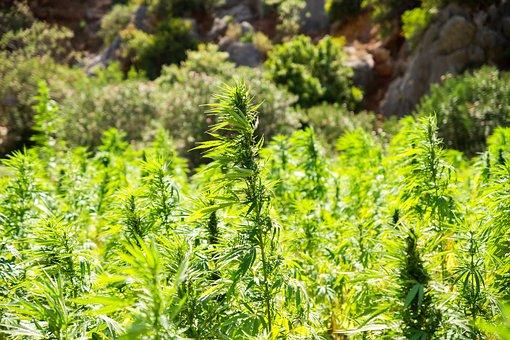Insurance BlogThursday, June 06 2019
ORLANDO, Fla. —As we all know, Congress passed the 2018 Farm Bill, legalizing hemp. The Farm Bill removes hemp from the Controlled Substances Act and allows farmers to pursue federal hemp cultivation permits, while individual states can regulate the industry within their borders as they see fit. Already, 40 states have established hemp cultivation “pilot programs” for industrial and commercial purposes, although the plant has been strictly regulated. Hemp is primarily a cheap source of CBD, which has become a hot commodity, and the passage of the Farm Bill ensures that people who farm and create products with CBD are protected from prosecution. The federal legalization of hemp would also undoubtedly attract investors and businesses from outside the U.S. The USDA’s legal opinion basically reiterated many of the changes specified in the 2018 Farm Bill. The memorandum stated that hemp has been removed from the Controlled Substances Act (CSA) and that states and Indian tribes may not prohibit the interstate transportation of lawfully marketed hemp products, although they do have regulatory control over the production of the crop within their jurisdictions. About its transportation, too many questions remain. Recently, there was a case of a great-grandmother from Tenessee entering one of Disney’s theme parks who was arrested for carrying CBD oil. Despite having in her possession a note from her doctor, certifying its medical use for her chronic arthritis condition, was arrested. She spent 12 hours in jail and was trespassed from Disney property before being released on $2,000 bail. The charges were later dropped. In airports and airlines, the industry is also getting a boost from the new TSA ruling allowing passengers to carry on all FDA-approved medical marijuana products as well as certain types of CBD. In May 31st, hemp businesses together with regulators, scientists, and other stakeholders to assist with the “process of reconciling” varying state and federal laws. For example, In Idaho, the Ada County prosecutor charged a trucker, with illegally hauling hemp from Oregon into Idaho. The USDA opinion and disagrees with this high profile case. There has also been confusion over varying state laws regulating hemp-derived CBD in food, lotions and dietary supplements, substances that have become enormously popular among consumers. Whether recent regulatory developments will impel the Ada County Idaho Prosecutor’s office to drop charges against the above-mentioned case, and two other truckers remain to be seen. Originally, hemp cultivation became illegal in the U.S. in 1937, under provisions in the Marihuana Tax Act. In the intervening eight decades, American culture has steadily warmed to the idea of reviving the agricultural commodity and its many commercial uses. The hemp-derived CBD market was estimated at $591 million in 2018, and it was expected to grow 40 times its size—to $22 billion by 2022. The rapid growth will be supported by an anticipated explosion in distribution channels for these products in the next few years. For now, it is a matter of time, when the large alphabet soup of agencies involved in the process, and that are acknowledging the legality of hemp continue to help and keep the public informed. |
Terms & Conditions | Copyright | Privacy Policy
© 2020 Florida Transportation Insurance
Insurance for Transportation Companies, Insurance for Public Transportartation, Transportation Insurance Florida
